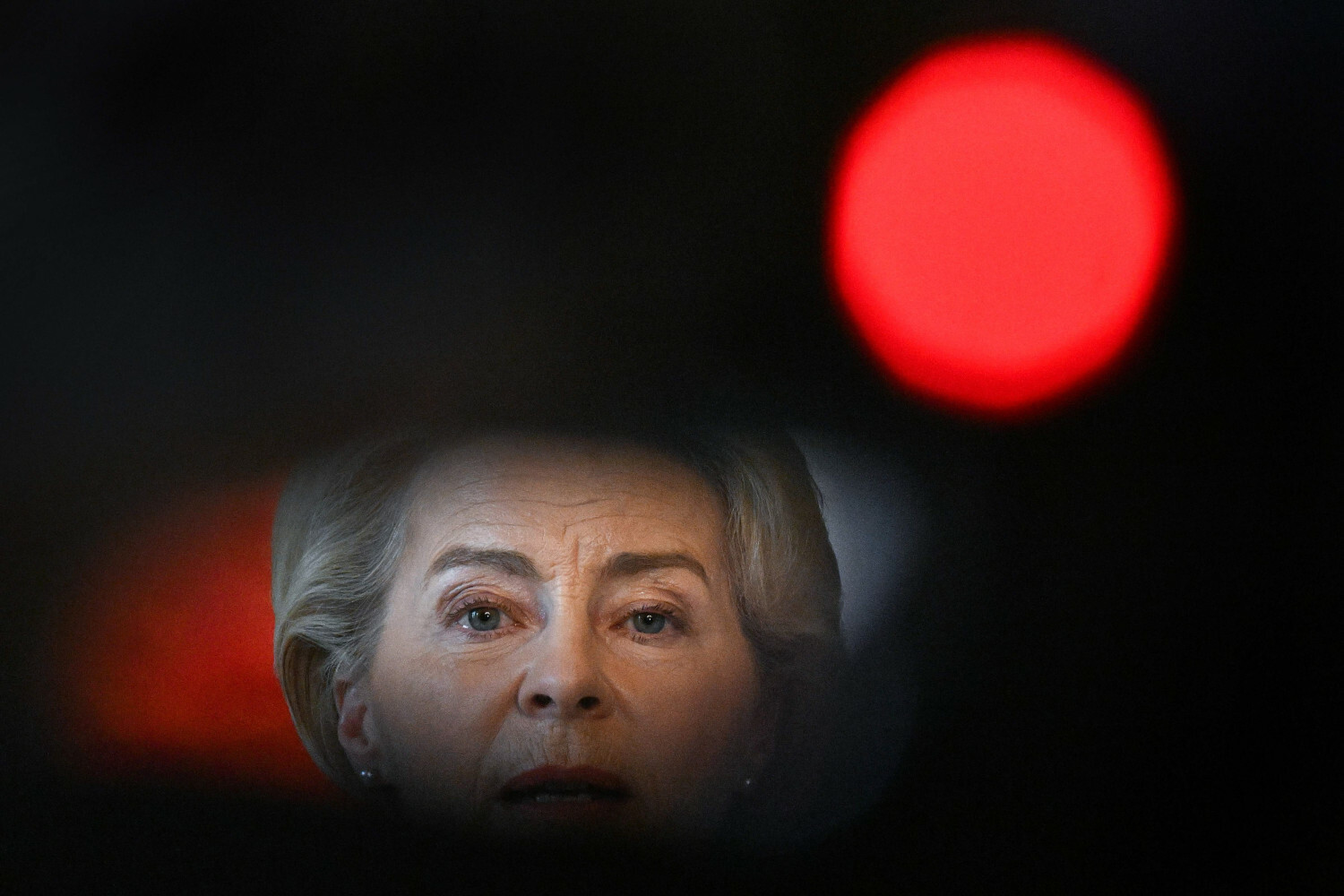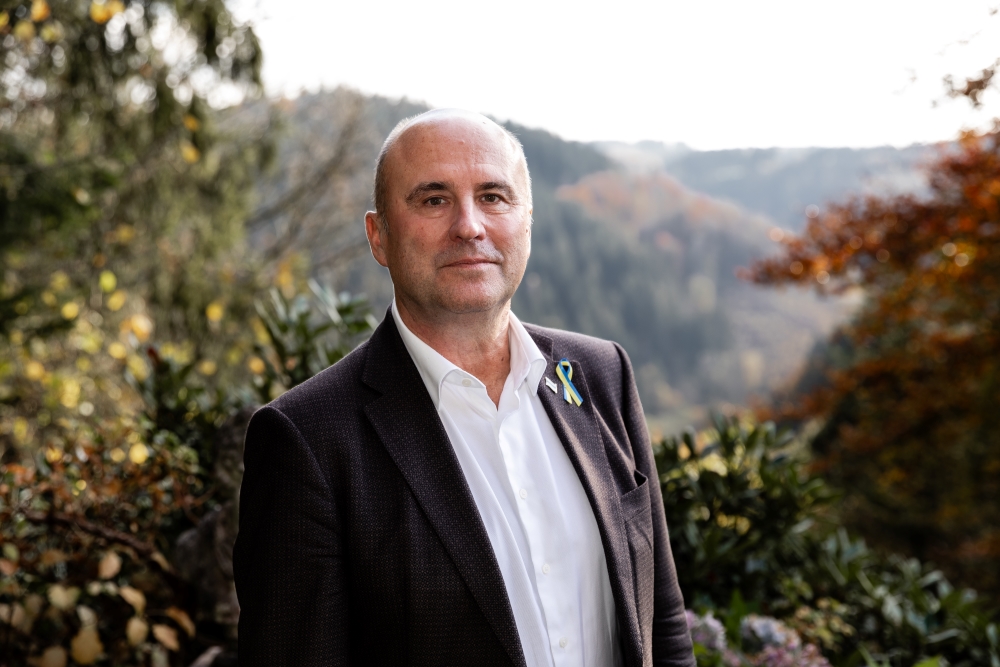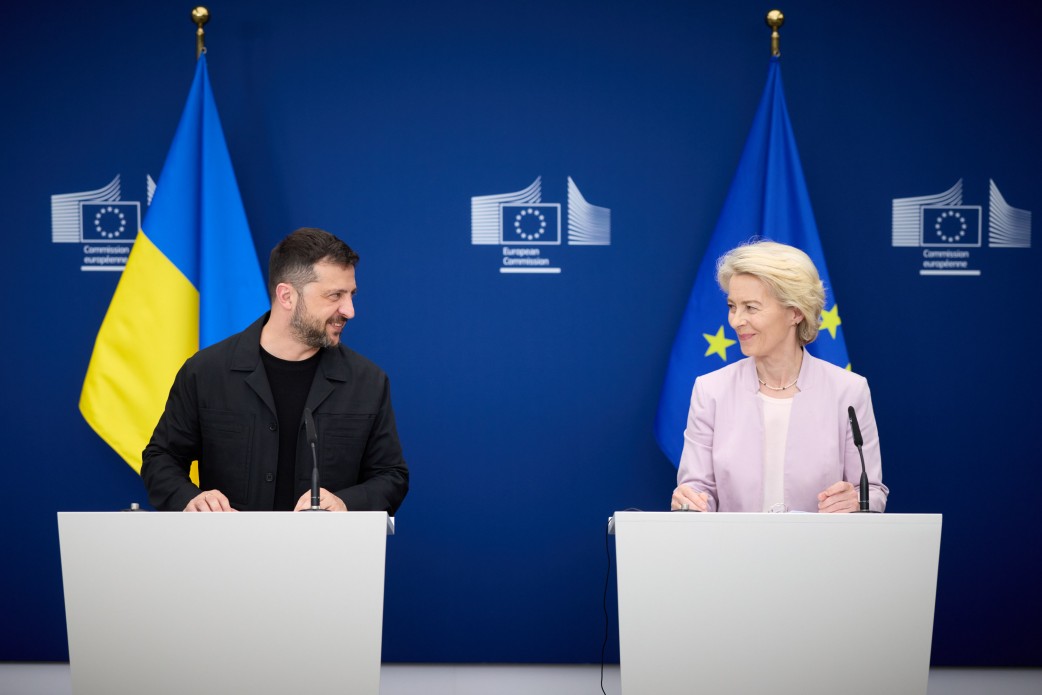Support Sestry
Even a small contribution to real journalism helps strengthen democracy. Join us, and together we will tell the world the inspiring stories of people fighting for freedom!
Чому шведи мають такий високий рівень суспільної довіри? І як вони будують свою стійкість у випадку кризи?
Коли ворог стукає у двері
У жовтні 2014 року світ облетіли кадри таємничого об'єкта, що з'явився з води в районі Стокгольмського архіпелагу. Збройні сили Швеції негайно прокоментували інцидент як «свідчення іноземної підводної діяльності». Автори статті під назвою «Це сталося: полювання на підводний човен у Стокгольмському архіпелазі», яка з'явилася 20 жовтня 2014 року в щоденній газеті «Dagens Nyheter», посилаючись на джерела, описали, як шведські служби перехопили розмову російською мовою на частоті, яка використовується Росією в надзвичайних ситуаціях. Подальший обмін зашифрованою інформацією мав відбуватися між об'єктом і російською базою в регіоні Кенігсберга.
Розпочалося полювання на відправника сигналу. За даними джерел, це мав бути російський танкер NS «Конкорд», який вже кілька днів перебував у відкритих водах Балтики поблизу Стокгольмського архіпелагу. У «Dagens Nyheter» можна було прочитати, що Міністерство оборони Росії одразу ж заперечило, що будь-який російський підводний човен перебуває навіть поблизу шведських кордонів. Але фотографії заперечити було неможливо.
Цей інцидент змусив шведську армію почати змінюватися. Після того жовтневого ранку, щоб не сіяти непотрібну паніку, уряд почав вносити зміни на випадок війни. Однією з них стало відновлення програми підводних човнів, яку очолила шведська компанія «Saab».
Шведи усвідомлювали, з якою легкістю іноземна держава може перетнути їхню національну територію — і практично увійти до столиці
Відтепер «Saab» мав протидіяти порушенню морського права, а підводний оборонний потенціал Швеції мав бути максимально посилений. Техніки та інженери почали працювати над розробкою підводних човнів-невидимок для радарів, які були б найкращими у світі, а також над системою виявлення підводних човнів.
Незабаром після цього, біля Скеппсброну в Старому місті Стокгольма, з води з'явився «Gotland» — підводний човен ВМС Швеції, частина найсекретнішої оборонної системи шведського флоту. Це вузьке і довге судно, екіпаж якого, що складається з 25 осіб, вдосконалює спостереження, топить ворожі кораблі та уникає зіткнення з кораблями і літаками.
Ще десять років тому плани розвитку програми підводних човнів ставилися під сумнів і навіть загрожували закриттям. Сьогодні вже немає жодних сумнівів: такі судна відіграватимуть ключову роль в обороні Швеції. Вигляд синьо-жовтого прапора, що майорів над чорним підводним човном, був великою несподіванкою для тих, хто прогулювався набережною. Багато хто навіть не знав, що шведські військові взагалі мають підводні човни, а пересічний громадянин і гадки не мав, що Швеція є світовою державою в цій галузі.

На випадок кризи або війни
Через два роки після подій на Стокгольмському архіпелазі до поштових скриньок усіх мешканців Швеції надійшла брошура під назвою «На випадок кризи чи війни — важлива інформація для мешканців Стокгольму» (Om krisen eller kriget kommer - viktig information till Sveriges invånare). На менш ніж 20 сторінках вона всебічно пояснює, що таке готовність до кризи: що робити, коли зникає телефонний зв'язок, інтернет, електрика та доступ до інформації, а також кому довіряти і звідки отримувати інформацію. Брошура підкреслює, наскільки важливо, щоб громадяни були здатні впоратися з кризою чи війною самостійно, до того, як прийде державна підтримка. Тому що це дуже важливо.
Одна зі сторінок містить контрольний список з порадами, як підготуватися в домашніх умовах. У ньому перераховані приклади їжі тривалого зберігання та їжі, яка не потребує багато води для приготування (що також може бути проблемою), обов'язкові засоби зв'язку, предмети гігієни та медицини, а також необхідні документи. Про все це заступник голови МВС розповів в інтерв'ю PAP.
— Будьмо готові в межах наших можливостей вижити принаймні три дні без допомоги державних структур, — сказав Вєслав Лесьнякєвич. — Маємо мати запас води, необхідні медикаменти, засоби гігієни та санітарії, запас їжі, освітлення, яке працюватиме без електромережі, заряджені павербанки. А також транзисторне радіо, бо ми вже забули, що це може бути єдиним засобом отримання повідомлень.
Остання версія шведської брошури була опублікована в листопаді 2024 року і, як і попередня, не викликала шоку чи паніки серед громадян. Розширена на кілька сторінок, вона, вочевидь, спирається на досвід з українського фронту — знання, які шведський уряд намагається використати для посилення безпеки своїх громадян. Це також проявляється у посиленні рекламних кампаній щодо вступу до армії, а також у підвищенні обізнаності про те, звідки може прийти загроза — у випадку Швеції, з Балтійського моря та півночі країни. Саме тому у 2025 році розпочалася підготовка шведських арктичних спецбригад, щоб у разі війни і громадяни, і військові були готові до захисту.

Війна в Україні виграє нам час
На початку березня під час засідання Сейму прем'єр-міністр Дональд Туск оголосив, що в Польщі триває підготовча робота над проєктом створення півмільйонної армії. Елементом проєкту буде військова підготовка, яку пройде кожен дорослий чоловік. За словами прем'єр-міністра, навчання покликане забезпечити, щоб ті, хто не піде до регулярної армії, могли стати повноцінними солдатами в конфліктній ситуації. На думку незалежного військового експерта і популярного публіциста, який виступає під псевдонімом Капітан Лісовський, у Польщі може не вистачити захисників, якщо почнеться війна. Однією з причин цього є давно припинений призов на строкову військову службу.
— Війна в Україні показала, що потрібні людські ресурси, які обчислюються сотнями тисяч, — каже Лісовський. — Ресурси резервістів, тих, хто пройшов підготовку, або тих, хто лише потребує перепідготовки. У Польщі ми маємо серйозний дефіцит людських ресурсів. У нас менше таких кадрових резервів, ніж у Білорусі, де їх близько 300 тисяч. Для нашої безпеки ми повинні відновити ці резерви. Ми також повинні відновити резерв техніки. Це буде великим викликом.
На думку капітана Лісовського, недарма прем'єр-міністр тільки зараз оголосив про концепцію навчання поляків, щоб за короткий час збільшити кількість резервних і мобілізаційних ресурсів нашої армії. Це правильний крок. Можна лише мати сумніви щодо запропонованих методів.
— Місячного навчання недостатньо, вважає експерт. — У всіх аналізах, які ми з колегами робили, виходили з того, що це три місяці. Пам'ятаймо, що зброя змінилася, технології змінилися, люди теж змінилися, і все це потрібно враховувати. Ми вважаємо, що тримісячний період підготовки є достатнім для того, щоб отримати базового стрільця, якого потім можна буде готувати до служби в армії, залежно від його здібностей.
Він також додає, що розширення нашої армії дає нам можливість отримати ще більший стримуючий і оборонний потенціал в раціональні терміни, що має, як мінімум, змусити Росію глибоко замислитися над тим, чи варто з нами зв'язуватися. Бо чи варто нападати на добре підготовлену країну, коли це може призвести до ще більших втрат, ніж війна в Україні, навіть якщо фронт буде набагато коротшим?
— Я кажу це з надією, що Україна не поступиться і що польсько-український кордон буде для нас безпечною ділянкою східного кордону, —додає капітан Лісовський. — І що нашою єдиною турботою залишиться ця північно-східна ділянка кордону нашої батьківщини, на стику з Кенігсберзьким регіоном і на кордоні з Білоруссю. Це дозволить нам максимально заощадити сили в оборонній операції і мати їх достатньо не тільки для самозахисту, але й для того, щоб мати можливість відплатити агресору за його дії.
Бартломей Випартович, журналіст і автор книги «Між Бугом і правдою», йде у своїх роздумах на крок далі. На його думку, Польща вже певний час є учасником війни. І те, що відбувається на українському фронті, виграє нам час
— Польща вже тривалий час перебуває у стані кібервійни, каже Випартович. — Наші сили кіберзахисту проводять оборонні операції, і ми вразливі до атак як з боку державних, так і недержавних гравців. Ми також перебуваємо в умовах гібридної війни, або, як ви можете сказати, на порозі війни. Сюди входить міграційна криза на польсько-білоруському кордоні. Ми піддаємося диверсійним атакам — це і спроби підпалів, і більш активні дії російських спецслужб. Чи можна побоюватися повномасштабної війни? На даний момент Росія сильно втягнута у війну в Україні, і саме ця війна є, в певному сенсі, вирішальною з точки зору майбутніх форм її агресії. Але коли справа дійде до мирних переговорів або припинення вогню, годинник почне цокати, ми почнемо вимірювати час. Тому що Росія, без будь-яких військових дій, почне відновлювати свої можливості. Тому, як це не парадоксально, для багатьох європейських країн, включаючи Польщу і країни Балтії, втягнутість Росії у війну в Україні є своєрідною гарантією безпеки.
Соціальна довіра та стійкість до дезінформації
Шведська модель розбудови суспільної стійкості в умовах кризи — це передусім спроба створити системне рішення, за якого громадянин знає, що робити в умовах кризи, як до неї підготуватися, на що розраховувати і звідки брати інформацію, щоб не піддатися дезінформації. Згідно з останніми статистичними даними Шведського агентства державного управління (Statskontoret), 65% громадян Швеції довіряють своїм збройним силам, 74% — поліції і 88% — поліції безпеки Säkerhetspolisen.
Брошура «Коли приходить криза або війна» лише нагадує інформацію, яку шведи вже знають: як звучать сигнали тривоги, що попереджають про небезпеку, де розташовані укриття і до яких місцевих органів влади звертатися за допомогою. З моменту повномасштабного вторгнення Росії в Україну шведська влада опублікувала сотні звітів про дезінформацію та способи боротьби з нею, а в Інтернеті поширюються кампанії про те, як не піддаватися на фейкові новини. На думку Бартломея Випартовича, освіта є найважливішим фактором у цій справі. Чим краще освічена людина, тим менше вона піддається різним когнітивним або дезінформаційним заходам. Це пов'язано з тим, що вона краще вміє перевіряти та перевіряти інформацію.
— На жаль, соціальні мережі та великі технології заохочують людей замикатися в своїх інформаційних бульбашках, каже журналіст. — А вирватися з дезінформаційної бульбашки дуже важко. Це не схоже на те, що іноземна служба прийде до вас і скаже: «Привіт, відтепер ви наш агент і будете робити те, що ми вам скажемо». Набагато легше сформувати токсичне мислення, створити групи, які будуть поширювати шкідливу інформацію, створюючи у людини ілюзію, що вона є кимось особливим, що у неї є таємні знання — а отже, місія, яку вона може поширювати. Ось питання, яке можна було б розвивати на науковій конференції протягом кількох днів: «Чи ефективна боротьба з дезінформацією?». На мою думку, ні. Нам потрібно навчати та імунізувати один одного.
Як перевірити, чи не застрягли ми в інформаційній бульбашці? Варто змінити свої онлайн-звички і почати шукати інформацію по-іншому. Перш за все, потрібно вийти з-під впливу алгоритмів персоналізації, тобто тих, які відстежують нашу онлайн-активність: час, проведений на тій чи іншій сторінці, прочитані статті, написані коментарі чи залишені вподобання. Найпростіше рішення — видалити файли «тістечка», користуватися пошуковою системою в режимі інкогніто або перейти на DuckDuckGo чи Startpage.

Мій дім — моя фортеця
У методичних рекомендаціях, які готуються Міністерством внутрішніх справ у співпраці з Урядовим центром управління державної охорони, буде зроблено акцент на тому, що громадянин має бути готовим пережити 72 години наодинці у власній оселі. З цим погоджуються експерти, в тому числі творці проєкту «Академія Defence24». За словами генерала Ярослава Громадзіньського, стійкість суспільства починається зі свідомості окремого громадянина. Адже якщо кожна сім'я зможе прожити 72 години без зовнішньої допомоги з боку місцевої влади чи держави, будучи підготовленою та захищеною, вона не ляже тягарем на державу чи місцеву владу, які зможуть ефективно розгорнути всю систему допомоги та порятунку в ті критичні години після виникнення кризи, а потім надавати підтримку населенню.
— Саме в цьому і полягає стійкість, — каже генерал. — Надзвичайно важливим елементом є побудова довіри та комунікації між сім'єю та найнижчим рівнем місцевої влади: сільським головою, мером, головою району. Важливо, щоб ця влада встановила контакт з громадянином до того, як станеться кризова подія, щоб громадянин довіряв своїй місцевій владі. Щоб він знав, що в кризовій ситуації саме тут можна шукати реальну інформацію. А влада знала, що цю інформацію треба донести до громадянина, наприклад, випустивши оголошення кожні чотири години. Тому що найстрашніше у всій кризі — це необізнаність громадянина.
За словами генерала Громадзіньського, досвід України показує, що комунікація є ключовою для громадян. Українська влада призвела до того, що урядові повідомлення доходять до громадян через усі можливі комунікатори, починаючи з Telegram і закінчуючи сервісом X. Місцеві муніципалітети і навіть селища у великих містах мають власні канали в Telegram, де отримують інформацію з перших вуст.
— Стійкість суспільства — це також стійкість до дезінформації, продовжує генерал. — Стійкість до фейкових новин, стійкість до сіяння паніки серед населення. Це те, що показала нам гібридна війна: що можна дуже сильно вплинути на суспільство, щоб люди перестали вірити місцевій владі, перестали вірити владі. А звідти — один крок до дестабілізації державних структур.
Громадзіньський є прихильником ідеї тривожних скриньок, а не валіз. Це не означає заперечення цінності тривожної валізи, адже її вміст — вода, їжа довготривалого зберігання, деякі батарейки, акумулятори, павербанки, тобто все, що допоможе людині пережити критичний час, — є дуже необхідним. Вся справа в назві, адже назва «тривожна валіза» (пол. plecak przetrwania — прим. пер.) одразу наводить на думку про втечу.
— А це не про втечу. Втеча — це те, що працює на користь ворога, це створює паніку в наших рядах. Йдеться про те, щоб вижити в місці свого проживання протягом 72 годин, не обтяжуючи державну систему. Перечекати, але бути поінформованим і не панікувати. Дати державі шанс активувати систему реагування на надзвичайні ситуації і допомогти вам.
Готуватися до гіршого, сподіватися на краще
Варто бути готовим до кризової ситуації до того, як вона станеться, адже підготовка дасть нам відчуття спокою. Коли держава розгорне допомогу громадянам у кризовій чи воєнній ситуації, буде вже запізно для тренувань та інструктажів. Коли ми думаємо про власну безпеку або безпеку нашої сім'ї, ми самі повинні мати певні навички. Даміан Дуда, президент фонду «Тим часом» (W międzyczasie), який від початку повномасштабної війни рятує життя українських солдатів на передовій, наголошує, що найголовніше — бути готовим надати першу допомогу — не лише комусь іншому, а й собі. Війна в Україні показала, що не обов'язково бути учасником бойових дій, щоб потрапити під ворожий вогонь, як на полі бою. Адже Росія так само обстрілює ракетами українські міста, завдає поранень цивільному населенню, з якими солдати щодня стикаються в окопах.
— Західний світ живе у фальшивому почутті безпеки, — каже Даміан Дуда. — Ми перебуваємо під абажуром, створеним видимістю міжнародного гуманітарного права і який створює видиме відчуття сили альянсу.
Переорієнтація політики США показує, що кожна країна, кожне суспільство повинні в першу чергу думати про власну безпеку — і лише потім робити ставку на альянси і право
За словами Дуди, важливо зробити копії документів і тримати їх у рюкзаку на випадок евакуації. А також подбати про пальне на випадок, якщо доведеться пересуватися. Також не зайвим буде пройти курс першої медичної допомоги або навіть піти далі і пройти тренінг з медицини поля бою (відомий як TC3, від Tactical Combat Casualty Care — тактична допомога пораненим в бою). Набуті там знання допоможуть вам зорієнтуватися в разі загрози і дадуть певне уявлення про те, з якими пораненнями вам доведеться мати справу.

— Польща не мала бойового досвіду з часів Афганістану та Іраку, які, до речі, були експедиційними, а не повномасштабними конфліктами. Як наслідок, наші силові структури не завжди мають адекватні знання або належну підготовку у вигляді системи тренувань, — пояснює Дуда. — Завдання нашого фонду, окрім порятунку людей на полі бою і набуття там досвіду, полягає ще й у тому, щоб передати цей досвід нашим збройним силам. Це один з важливих аспектів нашої роботи: ми вчимося там, щоб навчати тут, вдома, і зміцнювати оборонний потенціал нашої Батьківщини.
На цьому питанні також зупинився капітан Мацєй Лісовський. На його думку, польська армія на центральному рівні ще не вчиться на важкому досвіді своїх українських сусідів. Однак в окремих військових частинах, особливо у спецпідрозділах, ці зміни і готовність вчитися вже можна побачити. Це важливо, адже кожен курс чи тренінг, навіть найпростіший, підвищує обізнаність у так званій «червоній тактиці», тобто всіх процедурах і техніках надання першої медичної допомоги та евакуації з поля бою.
— Ми живемо в час, коли люди є одним з найважливіших активів і ресурсів, — каже Лісовський. — З огляду на нашу демографічну ситуацію, ми не можемо дозволити собі розпоряджатися життями наших солдатів так, як це роблять росіяни у своїх «м'ясних атаках». Найважливіший виклик для нас —зробити людей більш стійкими до того, що відбувається на полі бою, за допомогою правильних навичок, включаючи медичну самодопомогу або допомогу своїм колегам. Очевидною є різниця у підході українців до своїх солдатів. Вони розвинули систему евакуації поранених до такого рівня, що їхні втрати незрівнянно менші, ніж у російської сторони.

Journalist and author of books (including «Sweden. Where a Viking drinks oat latte»). Delivers military aid to the frontlines. First witnessed the war with her own eyes in December 2022. It was then that she decided to return to the frontlines with aid as often as possible. Today, people say she is a «solid rear support». Soldiers fight effectively with rifles, while she is the rear guard with a camera and video equipment, feeling a duty to speak about what is happening. She wants to continue staying in place - to help and to show the reality of war - not always in black and sorrowful colours.





















